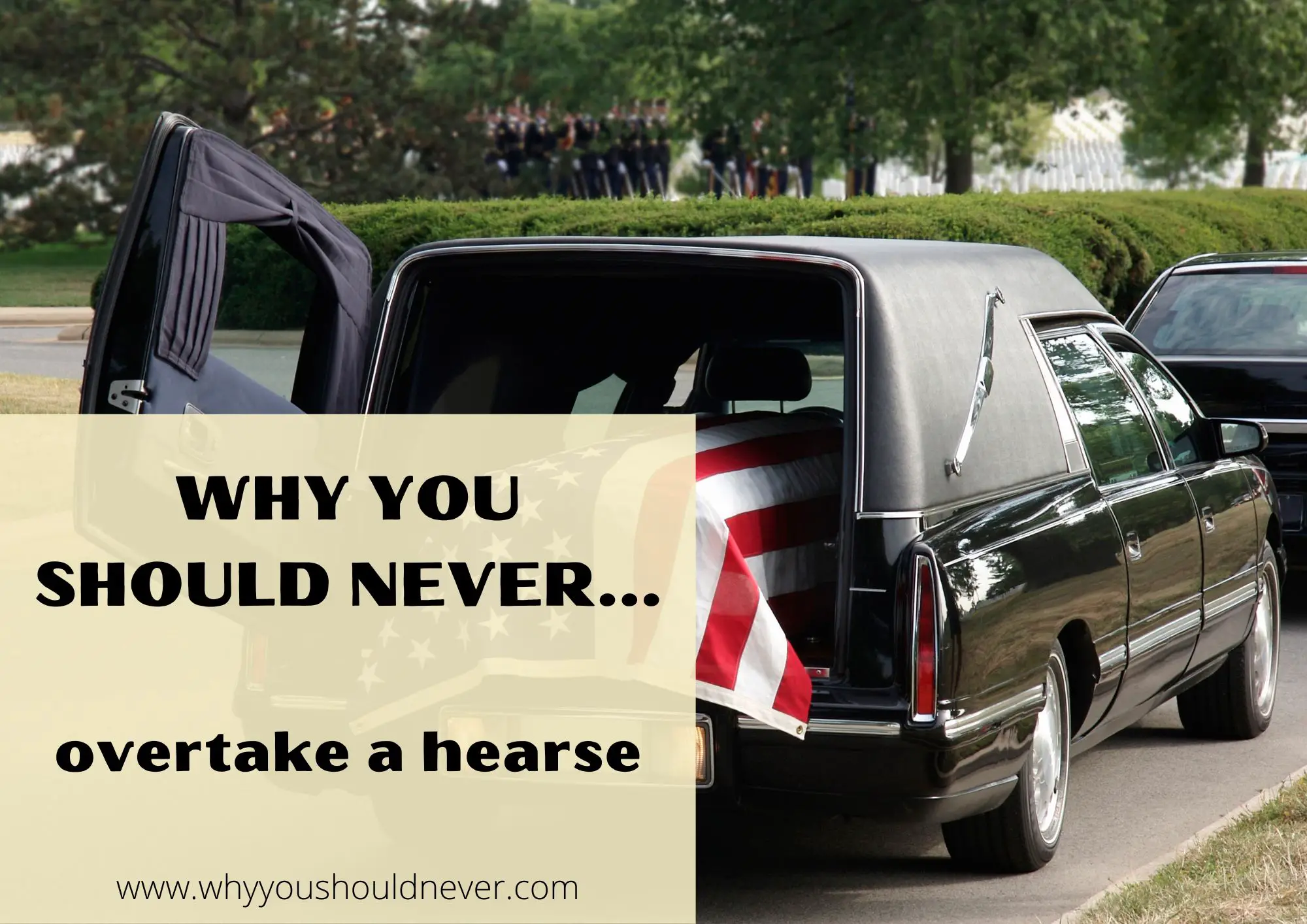![]()
Why You Should Never Overtake A Hearse
They say it’s important to keep an eye on the road, to drive safely, respect the rules, and maintain decorum – all for very obvious reasons. It’s pretty straightforward stuff, really.
Now here’s a peculiar nugget of driving wisdom you might not have come across before: never, ever overtake a hearse. Oddly specific? Absolutely. Is there an element of superstition wrapped up in it? Perhaps.
But it’s not just about old wives’ tales or unwritten social etiquette. There’s more to this piece of advice than first meets the eye. Let’s take a look at the whys and wherefores below.
6 reasons why you shouldn’t overtake a hearse
1. Respect for the dead
Let’s start with the most obvious one. It’s about respect for the deceased and their loved ones. These are folks in mourning, having possibly the worst day of their lives. Overtaking a hearse can be seen as a sign of impatience, and it can feel disrespectful.
It sends a message that your time is more important than their grief, which – let’s be real – it isn’t. So show some compassion and keep your foot off the gas.
2. Safety first, folks
Remember those high school physics lessons about momentum and kinetic energy? Yep, it’s time to dig that knowledge up.
A hearse, given its size and weight, will take longer to stop compared to your regular car. Overtaking one, especially at high speeds or on tight roads, could put you in a dangerous situation if the hearse needs to brake suddenly.
Why risk it, when you could simply maintain a safe distance and enjoy the drive?
3. Minimizing stress on the driver
Hearse drivers are under a lot of pressure. They’re responsible for transporting a loved one to their final resting place, all while navigating traffic. It’s a big responsibility.
Overtaking a hearse can put additional pressure on these drivers as they might have to adjust their speed or positioning unexpectedly. Let’s make their job a tad easier, shall we?
4. The parade is sacred
In many cultures, the journey to the cemetery is considered a procession, a parade of sorts. The line of cars following the hearse are all part of this symbolic journey. Cutting in or overtaking can disrupt this, and that’s just not the done thing. So, respect the parade. It’s their moment, not yours.
5. The role of cultural beliefs and superstitions
Even if you’re not particularly superstitious, it’s worth noting that various cultures around the world harbor deep-seated beliefs regarding behaviors around hearses. From Ireland to China, overtaking a funeral procession or a hearse is often viewed as not just impolite, but outright inauspicious.
In certain parts of Ireland, for instance, it’s said that overtaking a hearse might lead to being haunted by the spirit of the deceased. Similarly, in Chinese culture, it’s considered bad luck to disrupt a funeral procession in any way, which includes overtaking a hearse.
Even though these superstitions might not resonate with everyone, being aware of them can foster understanding and respect for cultural diversity. And honestly, who wants to risk attracting potentially negative energy just to save a few minutes on the road?
6. Dodging the wrath of grieving family members
If overtaking a hearse doesn’t tick off the spectral realm, it’s almost certain to annoy the earthly relatives in the cars trailing the hearse.
A funeral procession is a high-emotion event, and many people in the entourage are grappling with grief, loss, and maybe even a little anger. Now, imagine their reaction to someone zipping past the hearse as if it’s a Sunday joyride. Not a pretty picture, right? You might just find yourself at the end of someone’s fist! Just saying.
Final thought
In the grand scheme of things, sitting a bit longer behind a hearse isn’t going to derail your plans, but it could make a world of difference to those involved in the somber procession. Show some empathy, flex those patience muscles, and let’s turn the road into a better place, one respectful decision at a time.
So here’s to hitting the brakes rather than overtaking a hearse, because sometimes the best way forward is to take a step back, allowing respect and understanding to steer the way. Trust me, it’s the ultimate win-win, wrapped in a moment of compassion on the open road. Remember, driving isn’t always about speed, it’s about the journey and how we navigate it.
